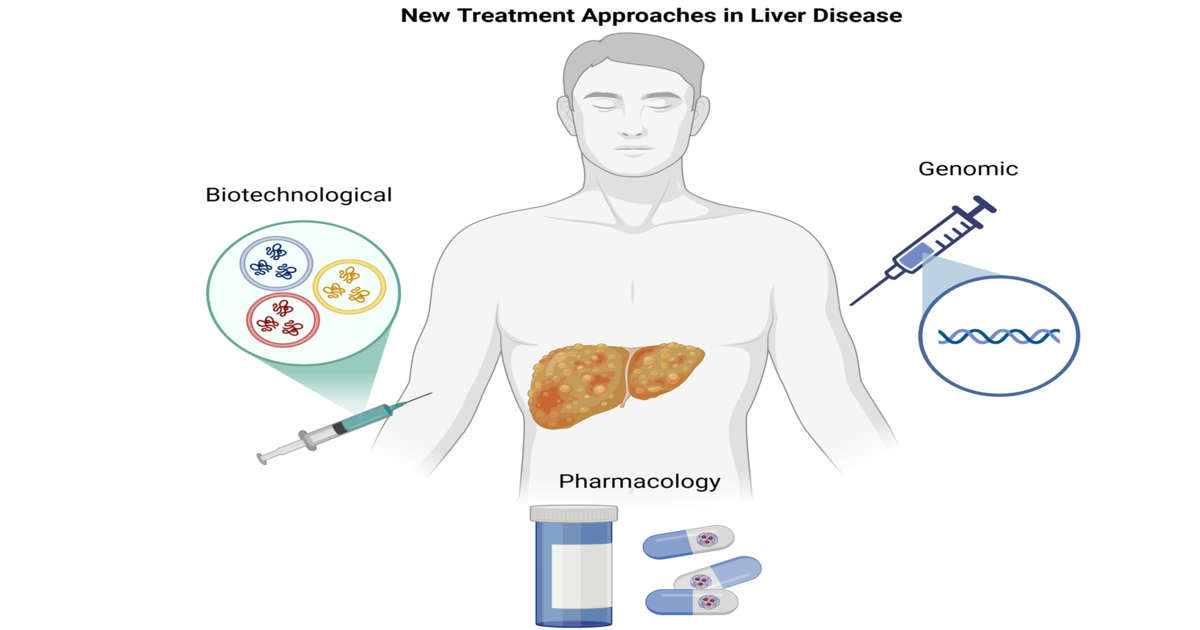- 5.5Impact Factor
- 10.0CiteScore
- 15 daysTime to First Decision
Advances in Pharmaceutics, Genomics, and Biotechnology for Liver Disease Therapy
This special issue belongs to the section “Drug Targeting and Design“.
Special Issue Information
Dear Colleagues,
Currently, liver disease has increased in incidence worldwide, representing a global health burden that encompasses a spectrum of conditions such as metabolic dysfunction-associated steatotic liver disease (MASLD), hepatitis, cirrhosis, and hepatocellular carcinoma. This growing burden underscores the urgent need to discover novel strategies to treat liver diseases and mitigate liver damage.
The new era of biomedical research has opened new avenues to pharmacological, genomic, and biotechnological interventions for more effective treatment. Recent advances in these areas have transformed the landscape of diagnosis, therapy, and prevention. Pharmacological strategies now include nanocarrier-based targeted drug delivery, immunomodulators formulated for sustained release, and antifibrotic agents loaded into biodegradable polymers to enhance hepatic bioavailability. Genomic technologies, including next-generation sequencing and genome-wide association studies (GWASs), now support the design of patient-specific lipid nanoparticles for gene therapy, guided by genetic variants in drug metabolism (e.g., CYP450 polymorphisms) or disease-associated targets (e.g., PNPLA3 in MASLD), thereby facilitating personalized formulation strategies. Biotechnological innovations such as drug-eluting bioengineered liver scaffolds and exosome-based delivery of regenerative miRNAs merge material science with pharmacology, offering novel platforms for liver repair and functional restoration.
Integrating these disciplines provides a comprehensive framework to improve patient outcomes and deepen our understanding of the complex biology underlying liver diseases. This Special Issue will explore emerging pharmacological, genomic, and biotechnological approaches in treating liver disease, aiming to gather relevant insights that will expand current knowledge and pave the way for developing novel therapeutic strategies.
Prof. Dr. Juan Socorro Armendariz-Borunda
Guest Editor
Manuscript Submission Information
Manuscripts should be submitted online at www.mdpi.com by registering and logging in to this website. Once you are registered, click here to go to the submission form. Manuscripts can be submitted until the deadline. All submissions that pass pre-check are peer-reviewed. Accepted papers will be published continuously in the journal (as soon as accepted) and will be listed together on the special issue website. Research articles, review articles as well as short communications are invited. For planned papers, a title and short abstract (about 250 words) can be sent to the Editorial Office for assessment.
Submitted manuscripts should not have been published previously, nor be under consideration for publication elsewhere (except conference proceedings papers). All manuscripts are thoroughly refereed through a single-blind peer-review process. A guide for authors and other relevant information for submission of manuscripts is available on the Instructions for Authors page. Pharmaceutics is an international peer-reviewed open access monthly journal published by MDPI.
Please visit the Instructions for Authors page before submitting a manuscript. The Article Processing Charge (APC) for publication in this open access journal is 2900 CHF (Swiss Francs). Submitted papers should be well formatted and use good English. Authors may use MDPI's English editing service prior to publication or during author revisions.
Keywords
- liver disease
- nanocarriers
- lipid nanoparticles
- gene therapy
- bioengineered scaffolds
- biotechnological innovation
- drug delivery
- pharmaceutical formulation

Benefits of Publishing in a Special Issue
- Ease of navigation: Grouping papers by topic helps scholars navigate broad scope journals more efficiently.
- Greater discoverability: Special Issues support the reach and impact of scientific research. Articles in Special Issues are more discoverable and cited more frequently.
- Expansion of research network: Special Issues facilitate connections among authors, fostering scientific collaborations.
- External promotion: Articles in Special Issues are often promoted through the journal's social media, increasing their visibility.
- e-Book format: Special Issues with more than 10 articles can be published as dedicated e-books, ensuring wide and rapid dissemination.

